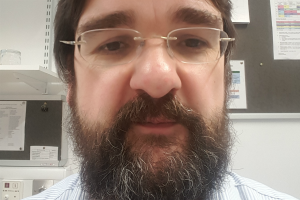
General practice is in crisis and the challenges are myriad. Enter the new GP contract proposal for Scotland. Saviour or harbinger of doom?
I am not a partner, a politician or a manager. I am a sessional GP. I firmly believe that the new contract as it stands is not a panacea or saviour despite all the pronouncements from our leaders as to its merits.
The elephant in the room is money – not our take-home pay, but the funding of our work. GPC Scotland proudly trumpets that ‘no practice will lose money’ but is this really true? As we all know, the only guaranteed funding we have is the global sum. The rest of our income whether from DES, LES or other is potentially precarious and far from ‘guaranteed’ as the contract suggests.
The current formula is very far from perfect but the new one, as per the DeLoitte paper, is fundamentally flawed.[1] The data it is based on come from a very small number of practices and it makes a large number of dubious assumptions, not least that the ‘rural factor’ can be dismissed as irrelevant to workload calculations. As a rural GP, I find this particularly insulting.
We don’t need anyone to tell us we are ‘expert medical generalists’ or to give us some sort of pseudo consultant status
Many rural practices in particular (though by no means exclusively) are being firmly slapped around the face by the precipitous drop in their core incomes. This ranges from 2-30% in my own area (Scottish borders) to over 85% in some Highlands and Islands practices potentially threatening their ongoing viability. ‘Protected’ status doesn’t convey any reassurance at all and it appears the more rural, the bigger the drop.
Data used to project GP income were also taken from a tiny fraction of Scottish practices. The extrapolation to produce a generalised model can hardly be considered representative or accurate. Also concerning is the proposal of an ‘income range with pay progression’. This, along with other issues, is basically heading toward a salaried service by stealth. Just ask HMRC.
Furthermore the introduction of the ‘expert medical generalist’ title, bandied about as though it will be an honour bestowed upon us, is misleading. I am already one. I am sure most of my colleagues would say the same. We don’t need anyone to tell us we are or to give us some sort of pseudo consultant status. It feels like someone patting a small child on the head and saying ‘good job’. We already deliver complex care and when it fails, more often than not, it is not down to a failure by a GP but by the system. I don’t wish to spend every clinic seeing nothing but complex multi-morbidity.
Don’t misunderstand me, I enjoy that part of the job, but I also like MSK, paediatrics and many other parts aspects that will be hived off to others. It is a loss that will make the job less attractive and will lead to increased rates of burnout and stress.
Lastly, I don’t believe these miracle staff members that are to ease GPs’ workloads are currently waiting in the wings somewhere to ride in and save the day. It may be that a small number will be engaged, but in most areas this will not be possible. In my own area, there is barely a physiotherapy service and community nursing has been decimated.
Even if they were to materialise, they won’t reduce workload. Make no mistake, the buck will still stop with the GP no matter what anyone else says. Inevitably they will be used to meet the board’s objectives, which will almost certainly diverge significantly from the real needs of communities. Boards frequently demonstrate they have no real understanding of primary care.
Furthermore, the new proposal fails to offer real solutions to recruitment or retention; simply employing more ‘noctors’ isn’t going to help, even assuming you can find them.
I do not have a magic wand solution to the current problems but telling us that it is ‘better than in England’ and we better vote for it for fear of some imagined doomsday alternative is not going to convince me that this is the way forward. In my opinion, the contract is deeply flawed and we need to reject it and think again.
Dr Andy Mcintosh is a sessional GP in Jedburgh and chair of GP Survival Scotland
1. Deloitte. Scottish Allocation Formula – General Medical Services Unit cost formula review. November 2016
Pulse July survey
Take our July 2025 survey to potentially win £1.000 worth of tokens












